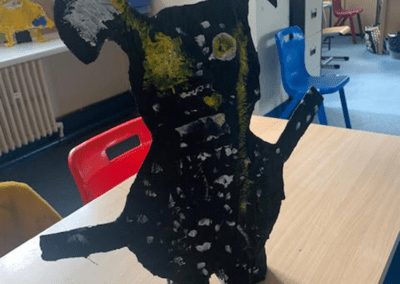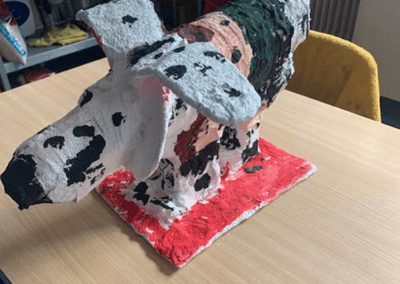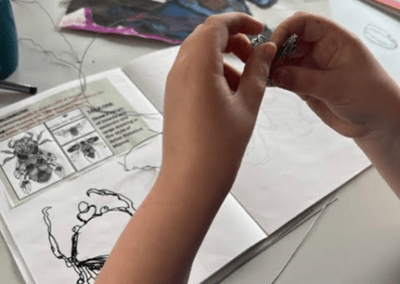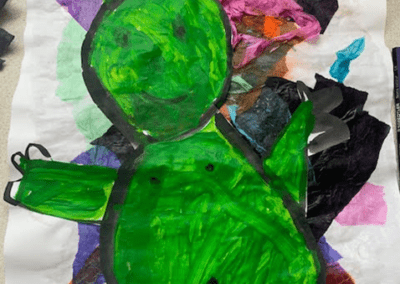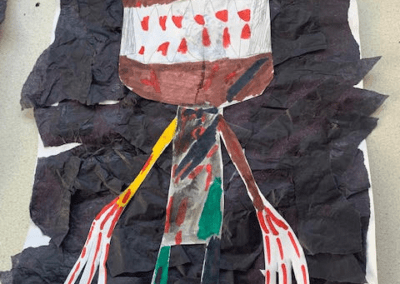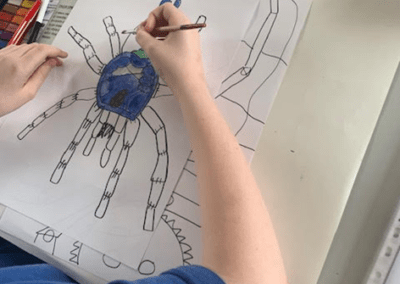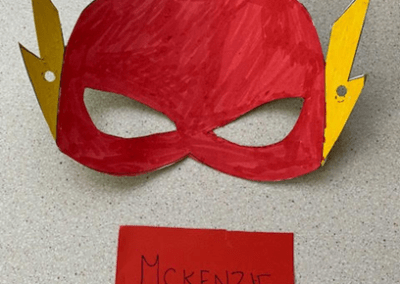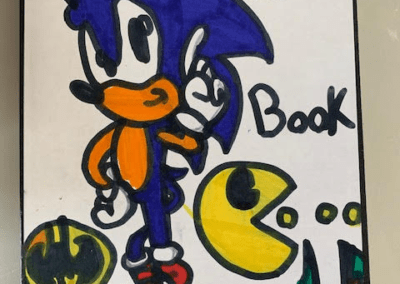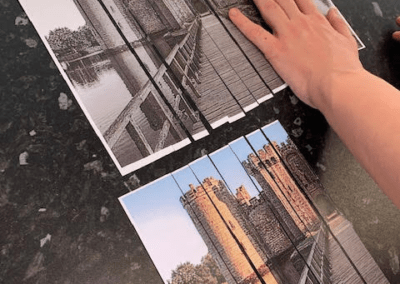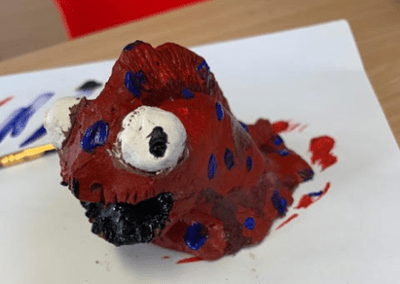Lower School
In lower school we follow the National Curriculum for Art and Design and lessons are planned to ensure that all students can produce creative work, explore their ideas and record their experiences. Students develop their skills in drawing, painting, sculpture and other art, craft and design techniques in a weekly Art lesson. When creating work we talk about the Formal Elements of Art; Line, Colour, Texture, Shape, Form, Tone and Pattern so we can start to evaluate and analyse creative works using the language of art with key vocabulary. Pupils learn about great artists and designers and understand the historical and cultural development of different art forms.
Pupils refine their technique, including their control and their use of materials, with creativity, experimentation and an increasing awareness of different materials available for them to explore with. Their work is recorded in a sketch book which they will begin to use to review and revisit ideas, to improve and refine their techniques and develop their skills, including drawing, painting and sculpture with a range of materials for example, pencil, charcoal, paint, clay, preparing them for KS3 and beyond.




